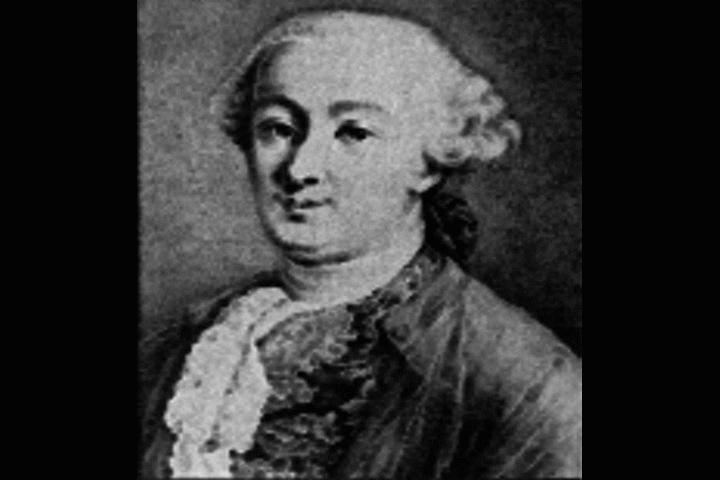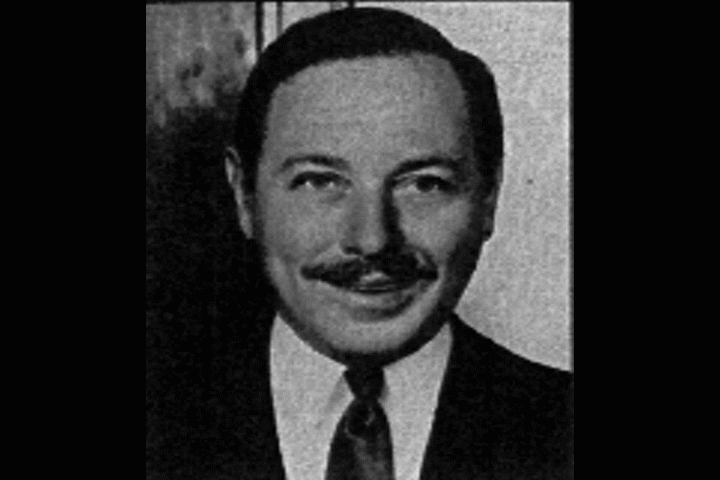PLAYWRIGHT -- Goals
The playwright's text is the only part of the theatrical experience to
survive the specific time and place of the theatrical performance. Often
plays are read or studied just as other literary genres, like poetry or
novels. However, it is important to understand that a play is merely a
blueprint for a live production, like a conductor's musical score.
The play text requires interpretive artists to bring it to life as an
art form. On the one hand, interpretive artists may alter some of a playwright's
original intentions, but, on the other hand, interpretive artists will
always make the theatrical experience richer for audience members. Why
do we still produce Shakespeare's plays? Why do audiences go see Hamlet
over and over again? Because the collaboration of different interpretive
artists with the playwright's text will always illuminate new aspects
of Shakespeare's play.
Because s/he is writing for the live stage, the playwright has different
artistic goals than other writers. The conventions of theatrical performance
(length of 2-3 hours, embodiment of characters, representation of locations,
etc) encourage playwrights to focus on representing action in dialogue
form. Occasionally playwrights will find a way to include a character's
inner thoughts, but in general we have to find out what they think from what
they are doing, unlike characters in novels. While some playwrights will
include descriptive notes, these are not seen directly by an audience and
are used by the interpretive artists as an aid in presenting the dialogue.
Actors and designers will get a sense of the playwright's goal from his
descriptions, but will always interpret the characters and locations in
their own ways. Similarly, actors and directors look for action implied
in dialogue because the theatrical medium encourages action as opposed
to thought, description, or other rhetorical functions.
While working within these theatrical conventions, a playwright has artistic
goals similar to other authors. The playwright seeks to communicate a
plot, characters, thematic material, and heightened language to an audience.
The author will often work within the conventions of a specific dramatic
genre, such as tragedy or farce, appropriate to his or her ideas;
because the conventions of a genre provide a common ground for communication
between author and audience. Finally, a playwright develops his or her
own style, both within a play and over the body of his or her work.
The playwright will not communicate directly, but through the participation
of other artists and media, all of which will deliver the playwright's
text in an immediate, sensual manner. Interpretive artists strive to illuminate
a writer's story, genre, and style.
 Playwrights arrived late to some dramatic styles; for example, Carlo Goldoni
(see image) an 18th century Italian writer, took characters who had been
popular on the improvised stage (Commedia dell'arte) for hundreds of years
and wrote plays that emphasized the language and literary arts around
them. A playwright's goal is to deliver his or her story in a manner that
encourages action; embodiment of sights, sounds, and movements; and the
excitement of live, three dimensional effects for an audience.
Playwrights arrived late to some dramatic styles; for example, Carlo Goldoni
(see image) an 18th century Italian writer, took characters who had been
popular on the improvised stage (Commedia dell'arte) for hundreds of years
and wrote plays that emphasized the language and literary arts around
them. A playwright's goal is to deliver his or her story in a manner that
encourages action; embodiment of sights, sounds, and movements; and the
excitement of live, three dimensional effects for an audience.
Tools
A playwright's tools are similar to other writers, though the playwright
must always apply literary tools while keeping in mind the goal of live
performance. On the broadest level, language and imagination are
the most important of the playwright's tools. The playwright writes primarily
in dialogue. With dialogue, she suggests action, intention, and
state of mind for characters. She differentiates among characters
by giving them different vocabularies, diction, and dialects. Simply by
analyzing the diction of characters, an actor or audience can determine
who will clash with whom in the play. Dialogue also suggests dramatic
genre: a play in verse will, from its opening lines, imply a serious
subject, maybe a tragedy; or conversely, quick back and forth dialogue
full of contemporary slang will imply a lighter subject, some kind of
comedy. The time and place in which the dramatic characters live is also
established in part by characters' diction. George Bernard Shaw's Pygmalion
, later made into the musical My Fair Lady, offers a good example:
Henry Higgins demonstrates his ability to tell exactly where in England
a person is from by his or her speech.  Consider the range of dialects you encounter daily; also, consider
how the words you use change depending on your context. You employ different
diction in class, in the stands at a ball game, and on the phone with
your grandmother. Imagination is used by the playwright in selecting
the events in the plot and shaping conflicts among characters. Writers
often base their work on events they have witnessed personally or encountered
in other artists' work; but the artist personalizes these experiences
and also makes them relevant to a broad audience through the use
of her or his imagination. An excellent example is Tennessee Williams'
The Glass Menagerie, (see photo) which is quite closely based on his
own family but adapted to speak more generally about American society,
specifically the south, in the 1930's.
Consider the range of dialects you encounter daily; also, consider
how the words you use change depending on your context. You employ different
diction in class, in the stands at a ball game, and on the phone with
your grandmother. Imagination is used by the playwright in selecting
the events in the plot and shaping conflicts among characters. Writers
often base their work on events they have witnessed personally or encountered
in other artists' work; but the artist personalizes these experiences
and also makes them relevant to a broad audience through the use
of her or his imagination. An excellent example is Tennessee Williams'
The Glass Menagerie, (see photo) which is quite closely based on his
own family but adapted to speak more generally about American society,
specifically the south, in the 1930's.
Continue Playwright reading...
Back to Blood's home page
 Playwrights arrived late to some dramatic styles; for example, Carlo Goldoni
(see image) an 18th century Italian writer, took characters who had been
popular on the improvised stage (Commedia dell'arte) for hundreds of years
and wrote plays that emphasized the language and literary arts around
them. A playwright's goal is to deliver his or her story in a manner that
encourages action; embodiment of sights, sounds, and movements; and the
excitement of live, three dimensional effects for an audience.
Playwrights arrived late to some dramatic styles; for example, Carlo Goldoni
(see image) an 18th century Italian writer, took characters who had been
popular on the improvised stage (Commedia dell'arte) for hundreds of years
and wrote plays that emphasized the language and literary arts around
them. A playwright's goal is to deliver his or her story in a manner that
encourages action; embodiment of sights, sounds, and movements; and the
excitement of live, three dimensional effects for an audience.  Consider the range of dialects you encounter daily; also, consider
how the words you use change depending on your context. You employ different
diction in class, in the stands at a ball game, and on the phone with
your grandmother. Imagination is used by the playwright in selecting
the events in the plot and shaping conflicts among characters. Writers
often base their work on events they have witnessed personally or encountered
in other artists' work; but the artist personalizes these experiences
and also makes them relevant to a broad audience through the use
of her or his imagination. An excellent example is Tennessee Williams'
The Glass Menagerie, (see photo) which is quite closely based on his
own family but adapted to speak more generally about American society,
specifically the south, in the 1930's.
Consider the range of dialects you encounter daily; also, consider
how the words you use change depending on your context. You employ different
diction in class, in the stands at a ball game, and on the phone with
your grandmother. Imagination is used by the playwright in selecting
the events in the plot and shaping conflicts among characters. Writers
often base their work on events they have witnessed personally or encountered
in other artists' work; but the artist personalizes these experiences
and also makes them relevant to a broad audience through the use
of her or his imagination. An excellent example is Tennessee Williams'
The Glass Menagerie, (see photo) which is quite closely based on his
own family but adapted to speak more generally about American society,
specifically the south, in the 1930's.